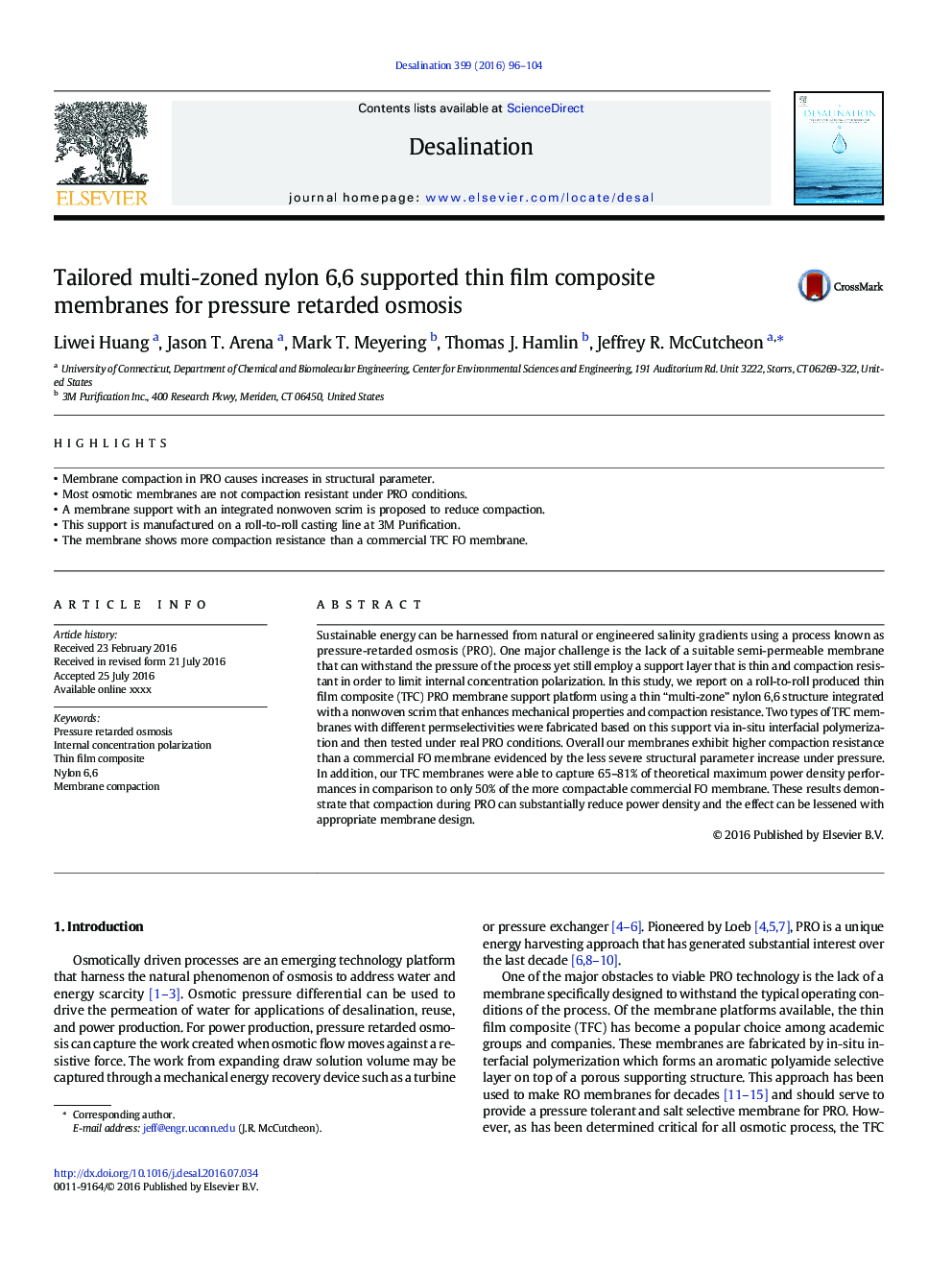| Article ID | Journal | Published Year | Pages | File Type |
|---|---|---|---|---|
| 7008157 | Desalination | 2016 | 9 Pages |
Abstract
Sustainable energy can be harnessed from natural or engineered salinity gradients using a process known as pressure-retarded osmosis (PRO). One major challenge is the lack of a suitable semi-permeable membrane that can withstand the pressure of the process yet still employ a support layer that is thin and compaction resistant in order to limit internal concentration polarization. In this study, we report on a roll-to-roll produced thin film composite (TFC) PRO membrane support platform using a thin “multi-zone” nylon 6,6 structure integrated with a nonwoven scrim that enhances mechanical properties and compaction resistance. Two types of TFC membranes with different permselectivities were fabricated based on this support via in-situ interfacial polymerization and then tested under real PRO conditions. Overall our membranes exhibit higher compaction resistance than a commercial FO membrane evidenced by the less severe structural parameter increase under pressure. In addition, our TFC membranes were able to capture 65-81% of theoretical maximum power density performances in comparison to only 50% of the more compactable commercial FO membrane. These results demonstrate that compaction during PRO can substantially reduce power density and the effect can be lessened with appropriate membrane design.
Keywords
Related Topics
Physical Sciences and Engineering
Chemical Engineering
Filtration and Separation
Authors
Liwei Huang, Jason T. Arena, Mark T. Meyering, Thomas J. Hamlin, Jeffrey R. McCutcheon,
